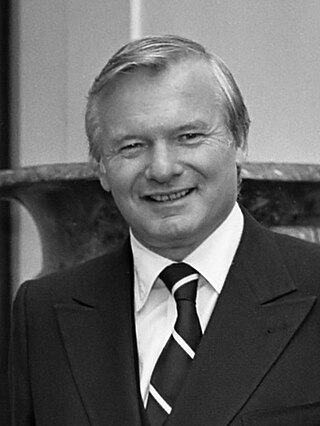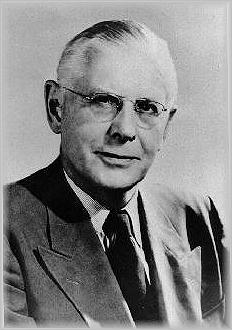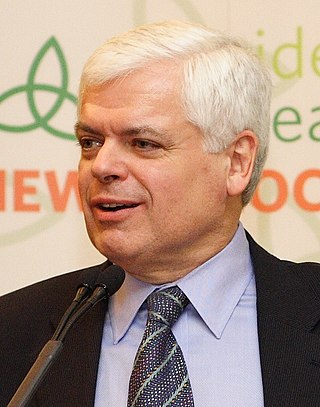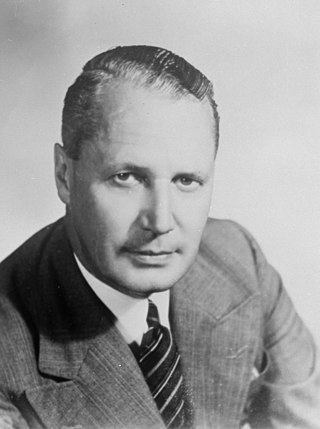Related Research Articles

The Canadian Alliance, formally the Canadian Reform Conservative Alliance, was a centre-right to right-wing federal political party in Canada that existed under that name from 2000 to 2003. The Canadian Alliance was the new name of the Reform Party of Canada and inherited many of its populist policies, as well as its position as the Official Opposition in the House of Commons of Canada. The party supported policies that were both fiscally and socially conservative, seeking reduced government spending on social programs and reductions in taxation.
The British Columbia Liberal Party, often shortened to the BC Liberals, is a centre-right provincial political party in British Columbia, Canada. The party currently forms the Official Opposition. Subsequent to the 2020 British Columbia general election, then–party leader Andrew Wilkinson announced his resignation on October 26, 2020, but remained as interim leader until Shirley Bond was chosen as the new interim leader on November 23; the party held a leadership election in 2022, which was won by Kevin Falcon.
The Conservative Party of Canada, colloquially known as the Tories, is a federal political party in Canada. It was formed in 2003 by the merger of the two main right-leaning parties, the Progressive Conservative Party and the Canadian Alliance, the latter being the successor of the Western Canadian-based Reform Party. The party sits at the centre-right to the right of the Canadian political spectrum, with their federal rival, the Liberal Party of Canada, positioned to their left. The Conservatives are defined as a "big tent" party, practising "brokerage politics" and welcoming a broad variety of members, including "Red Tories" and "Blue Tories".

The British Columbia Social Credit Party, whose members are known as Socreds, was the governing provincial political party of British Columbia, Canada, for all but three years between the 1952 provincial election and the 1991 election. For four decades, the party dominated the British Columbian political scene, with the only break occurring between the 1972 and 1975 elections when the British Columbia New Democratic Party governed.

The Ontario Liberal Party is a political party in the province of Ontario, Canada. The party has been led by interim leader John Fraser since August 2022.

The Progressive Conservative Party of Ontario, often shortened to the Ontario PC Party or simply the PCs, colloquially known as the Tories, is a centre-right political party in Ontario, Canada.
An interim leader, in Canadian politics, is a party leader appointed by the party's legislative caucus or the party's executive to temporarily act as leader when a gap occurs between the resignation or death of a party leader and the election of their formal successor. Usually a party leader retains the leadership until a successor is formally chosen — however, in some situations this is not possible, and an interim leader is thus appointed by the party's caucus or the party executive. An interim leader may also be appointed while a leader is on a leave of absence due to poor health or some other reason, and then relinquish the position upon the leader's return.

William Grenville Davis, was a Canadian politician who served as the 18th premier of Ontario from 1971 to 1985. Davis was first elected as the member of provincial Parliament for Peel in the 1959 provincial election where he was a backbencher in the Conservative caucus led by Premier Leslie Frost.
The Progressive Conservative Association of Alberta was a provincial centre-right party in the Canadian province of Alberta that existed from 1905 to 2020. The party formed the provincial government, without interruption, from 1971 until the party's defeat in the 2015 provincial election under premiers Peter Lougheed, Don Getty, Ralph Klein, Ed Stelmach, Alison Redford, Dave Hancock and Jim Prentice. At 44 years, this was the longest unbroken run in government at the provincial or federal level in Canadian history.
The Conservative Party of British Columbia is a provincial political party in British Columbia, Canada. In the early half of the 20th century, the Conservatives competed with the British Columbia Liberal Party for power in the province. Since the 1950s however, the party has had only a minor presence, not having elected a member of the Legislative Assembly in a general election since 1975. The last sitting MLA for the Conservatives was John van Dongen, who briefly crossed the floor to the party in 2012 before leaving to sit as an independent.

Thomas Laird Kennedy was a politician in Ontario, Canada, and served briefly as the 15th premier of Ontario, from 1948 to 1949. He was first elected as the Conservative member for Peel in the 1919 provincial election. He had been a longtime resident of Streetsville, Ontario, where he was master of River Park Masonic Lodge in 1908 and 1909.

Leslie Miscampbell Frost was a politician in Ontario, Canada, who served as the province's 16th premier from May 4, 1949, to November 8, 1961. Due to his lengthy tenure, he gained the nickname "Old Man Ontario"; he was also known as "the Silver Fox".

Donald Cameron MacDonald was a Canadian politician. Referred to in the media as the "best premier Ontario never had," he represented the provincial riding of York South in the Legislative Assembly of Ontario from 1955 to 1982. From 1953 to 1970 he was the leader of the social democratic Ontario section of the Co-operative Commonwealth Federation and its successor, the Ontario New Democratic Party.
John Joseph Wintermeyer was a politician in Ontario, Canada. He was a Liberal member of the Legislative Assembly of Ontario from 1955 to 1963 who represented the riding of Waterloo North. From 1958 to 1963 he served as leader of the Liberal party.

The Leader of the Official Opposition in Ontario, officially Leader of His Majesty's Loyal Opposition, is the leader of the largest party in the Legislative Assembly of Ontario which is not part of the government. The current Leader of the Opposition is Peter Tabuns, interim leader of the Ontario New Democratic Party, because the NDP won the second largest number of seats as a result of the 2022 election. This is the sixth time the CCF/NDP has formed Ontario's official opposition.

Archibald Kelso Roberts was a politician in Ontario, Canada. He was a Progressive Conservative member of the Legislative Assembly of Ontario from 1943 to 1948 and again from 1951 to 1967. Both times he represented the downtown Toronto riding of St. Patrick. He served as a senior cabinet minister in the governments of Leslie Frost and John Robarts.

The 1948 Ontario general election was held on June 7, 1948, to elect the 90 members of the 23rd Legislative Assembly of Ontario of the Province of Ontario.

The 1963 Ontario general election was held on September 25, 1963, to elect the 108 members of the 27th Legislative Assembly of Ontario of the Province of Ontario.
A Progressive Conservative Party of Ontario leadership election was held on October 25, 1961 to replace retiring Progressive Conservative leader and incumbent premier Leslie Frost. The party selected John Robarts on the sixth ballot.
The 23rd Legislative Assembly of Ontario was in session from June 2, 1948, until October 6, 1951, just prior to the 1951 general election. The majority party was the Ontario Progressive Conservative Party, however its leader, George Drew, lost his seat in the 1948 general election and soon after resigned as party leader to enter federal politics and take the leadership of the Progressive Conservative Party of Canada. He was replaced on October 19, 1948, by Thomas Laird Kennedy who served as premier and interim Progressive Conservative leader until Leslie Frost became party leader and succeeded Kennedy as premier on May 4, 1949.
References
- ↑ "PC Delegates Gather To Choose New Leader From Four in Race". Globe and Mail. 26 April 1949.
B. M. Greene, ed. (1952). "Frost, Hon. Leslie Miscampbell, Q.C., LL.D., D.C.L., M.P.P.". Who's Who in Canada (1951-1952 ed.). Toronto: International Press Ltd. pp. 25–6.